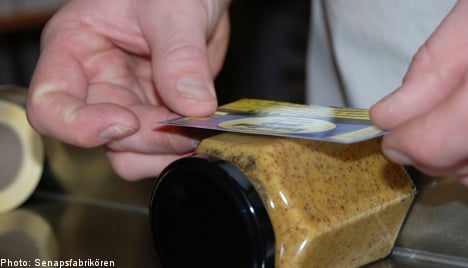The product which has been sold under the name Potenssenap, which translates as “Potency Mustard”, by a family firm on Visingsö near Jönköping for the past 30 years must now come up with another name.
“I thought it was just a big joke,” said Mathilda Wetter, who runs the Senapsfabrikörn factory, referring to when she received a letter from the local authorities.
But as the firm has no scientific basis for claiming that its reindeer horn infused mustard delivers on its claims, the firm accepts that it will have to fall into line.
The reason for the decision is that the EU has introduced uniform rules for member states to require health products to deliver on their pledges.
Wetter told Sveriges Radio that the product has been a popular over the course of its 30 years on the shelves with many tourists buying it as a present, especially for weddings.
Despite the retreat, Wetter maintains that she still believes that the mustard indeed does pack the desired punch that its label promises.



 Please whitelist us to continue reading.
Please whitelist us to continue reading.
Member comments